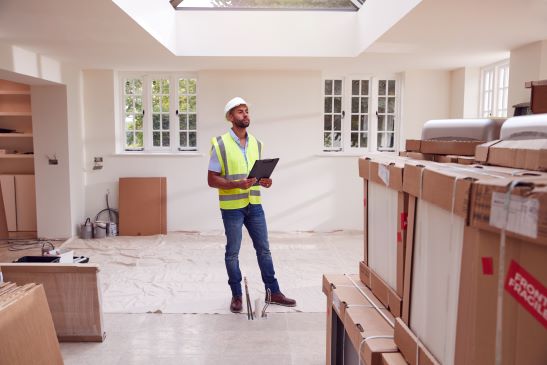At some point in many Aussies’ lives they hope to become a homeowner. This is one reason why building and pest inspection is a great profession to be in – you’re in high demand. Often, when someone is looking to purchase or properly maintain a home, investment, or commercial property, they’ll have it checked for any visible signs of pests, defects and safety hazards. So, they’ll need a building and/or pest inspector to provide this service.
Of course, this means property owners, not just homeowners but businesses too, will at some point likely need a building or pest inspector. Often, they’ll continue to use the same services many times throughout the years of property ownership.
If you’re in the building and pest inspection profession, this is business that could come to you. But how can you start a building and pest inspection career in Australia? Are there free courses, short courses or online courses or do you need a degree? Can you complete an apprenticeship or simply read about how to become an inspector then start doing it as a job, or are there legal requirements?
We’ve answered these questions in this article.
Building or pest inspection requirements
While they often go hand in hand, and both inspect and report on the condition of a property, building and pest inspection are two different types of inspections. A pest inspector identifies (and sometimes manages) pests on a property, while a building inspector investigates and reports on any visible defects or safety hazards on a property.
Requirements for building inspection
You’ll need to meet State and Territory requirements that meet either or both needs and, of course, the more skills (and trade experience) you have the better you will be at your job. For example, if you’re in Queensland, you need the Completed residential building inspection qualification as your base qualification to become a building inspector.
Requirements for timber pest inspection
In Australia, you need the relevant qualification and licensing to work in the pest inspection industry. Accredited qualifications are nationally recognised, and the specific qualifications you require will depend on the licencing of the territory or state you work in.
These could include one of the following accredited course offered by Rapid Training could support you in becoming licensed: the Certificate III in Urban Pest Management, Timber Pest Inspector course, or Timber Pest Manager.

Know the registration and license requirements to work in the building and pest inspection industry
In addition to a base qualification, there are additional requirements before you can preform building and pest inspections.
State and territory licencing authorities
Find out more about the licencing requirements in your state or territory here:
- NSW – Environment Protection Authority (EPA)
- VIC – Victorian Building Authority (VBA)
- QLD – Queensland Building and Construction Commission (QBCC)
- WA – Building Inspectors Association WA (BIAWA)
- SA – Australian Business Licence and Information Service (ABLIS)
- TAS – Consumer Building and Occupational Services (CBOS)
- NT – Northern Territory Government of Australia
- ACT – Your Career
This is an industry that demands skills and presents risks
While building and pest inspectors are generally in demand, that’s also because they need a very specific skillset and training. People buying and selling homes purchase your reports to inform them of the condition of a property, and its often a condition of banks before they’ll approve finance on a property.
These reports are an important element of a purchase decision at what is often an emotional, stressful, and high-pressure time for the customer. If you give them inaccurate or unclear information and they decide to buy a property thinking it’s relatively safe and it turns out not to be, this can affect your business greatly through complaints, poor reviews or if they sue you for compensation.
Read about best practice for pre-purchase inspection reports to avoid building inspection claims.
In addition to your customer placing lots of trust in you to protect their property investment – very likely one of the biggest in their life – working in building and pest inspection can also be dangerous. The hands-on work you do inspecting a building’s safety or facing off pests and handling chemicals come with physical and financial risks for you too.
It’s crucial to get the right training so you can put your best foot forward, keeping you, your customer, and your business safe.

Australian standards for building and pest inspection
Besides getting trained, qualified, registered and licensed, you must follow the Australian standards for building and pest inspections. This is the accepted industry standard that guides how inspections must be done and how they’re reported on.
The standards help keep the building and pest inspection industry consistent across Australia. They’re also a requirement of most insurance companies to ensure you’re covered in the event you want to make a claim against your policy if a customer takes steps to sue you.
Public liability and professional indemnity insurance
Another important part of safeguarding yourself in this industry is getting general liability insurance and professional indemnity insurance. Building and pest inspectors that have this cover have far better financial protection if, despite following the Standard and their best efforts, a customer accuses them of negligence.
Your insurance can also cover accidental damage (environmental or physical) that’s caused by your work on a property, whether it happens to the property itself, your customer, you or your employee. It can cover you for theft of monies or fraud by an employee, and defamation, libel and slander… Ask anyone who’s had to make a claim and they’ll tell you, this protection is invaluable.
Having the right insurance is about participating in the industry with your financial and reputational safety checks in place. Don’t wait for an accident to happen; be insured so you, your business and your customers are safeguarded at every step of the way.
Contact us online or call us on 1300 309 169 to start your quote.

